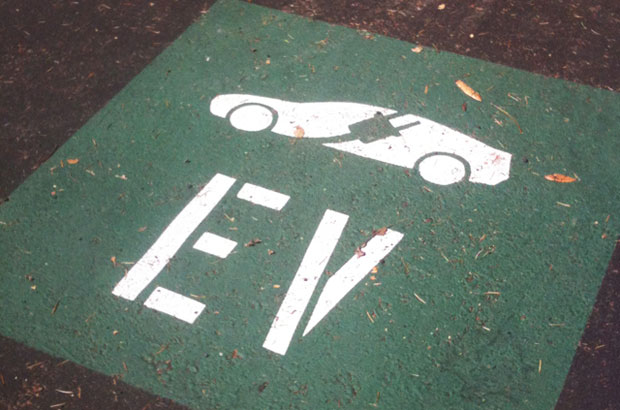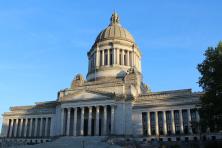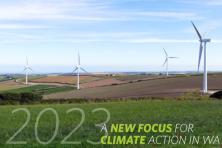This is part of a series of articles on Electrifying Transportation.
With a clean power grid, electric transportation can be a huge climate solution. How huge is limited only by our imagination—and whether our power utilities will rise to embrace a vision of a clean-energy transportation future.
If you have taken an electric car for a spin, you have probably loved taking an electric car for a spin. What’s not to love? They’re smooth, they’re quiet. With Washington’s relatively cheap electricity, they offer a way to save money. Perhaps best of all, they come with the sweet satisfaction of shrugging off the chains that bind our personal transportation choices to an industry hell-bent on wrecking our climate.
But there are a few lingering problems that hold many of us back from wanting to take the EV plunge. For example, we don’t want to have to think very hard about whether our car will get us from point A to point B without too much hassle. “Range anxiety” is real – so real that it has its own Wikipedia page – and is a major barrier for taking electric vehicles to the next level. Not all EV owners have home access to convenient fast chargers, and while the range of EVs is improving with each generation of new models, current charging infrastructure is no match for the convenience of gas stations situated in every neighborhood and at every highway exit.
The truth is, we need more charging stations where people live, work, and play if we are really going to electrify our transportation system.

How do we fill in that infrastructure gap? The surest path can be and ought to be through our electric utilities, where major investment is brought to bear on big questions about where our energy comes from and how we choose to use it. Utilities have long been responsible for cleaning up the electricity sector, but are becoming involved in cleaning up the transportation sector as well.
In brief, utilities can be at the heart of the best solutions to a complete transition to 100% clean energy. That’s why we’re celebrating a recent policy statement from Washington’s Utilities and Transportation Commission, outlining utilities’ potential role for investing in electric vehicle charging infrastructure.
The UTC, which regulates Washington State’s privately-owned utilities, is a little-known state agency with a big job in tackling climate change. Last month, they released a policy statement that Climate Solutions worked hard to shape and perfect. The statement provides guidance to utilities on how to best invest in EV charging infrastructure, while making sure that their customers are protected. It highlights the wide range of benefits to electrification, provides flexibility for utilities to experiment with different business models, and ensures that low-income communities reap the benefits, too. Furthermore, the framework remains open to investments for large transportation electrification projects, those that help electrify our transit system or large fleets. Electrifying these heavy-duty vehicles will provide additional health benefits to our communities that are impacted the most by pollution and climate change.
At this stage of deployment, getting more charging stations out there is one of the most important actions we can take to ensure that electric vehicles become the norm. We are motivated by the strong leadership from our Commission at a time when leadership on climate is needed the most, and are proud that other states can look to us as an example of how utilities can be at the center of fighting climate change. The transportation sector is one of the biggest barriers to achieving 100% clean, but we just got one step closer in Washington.





